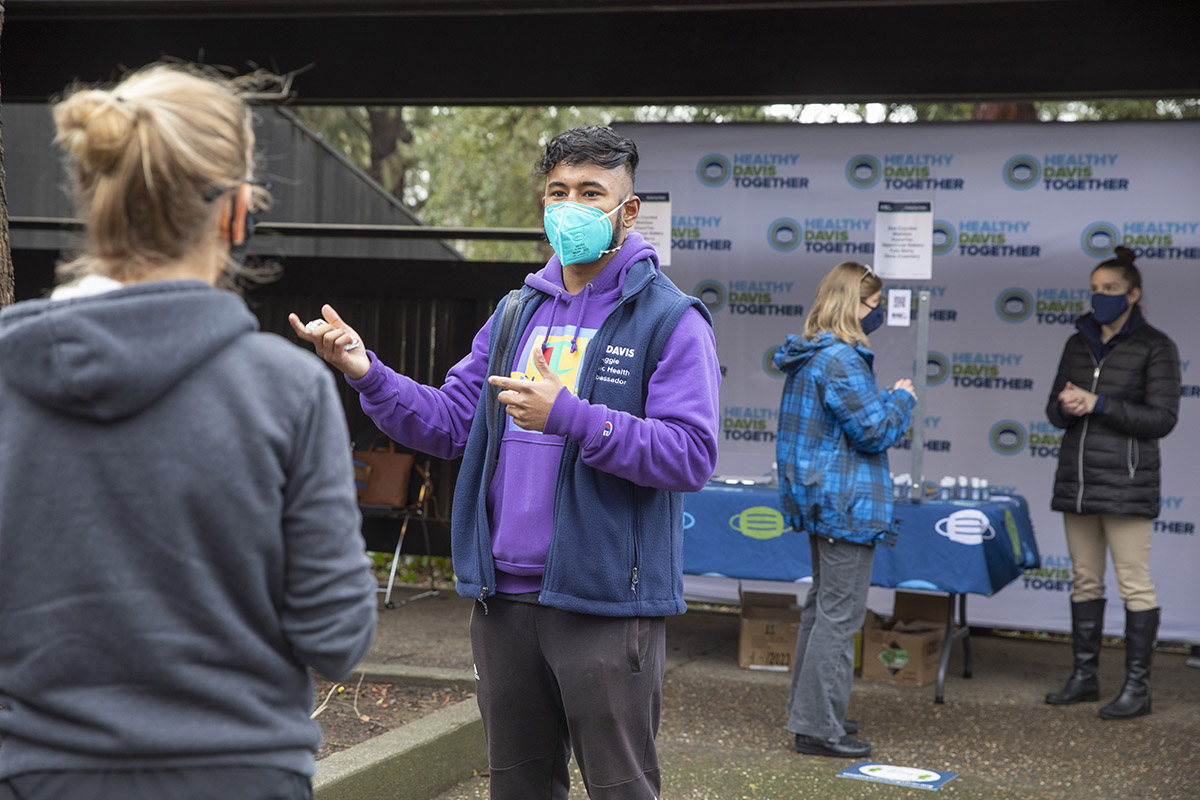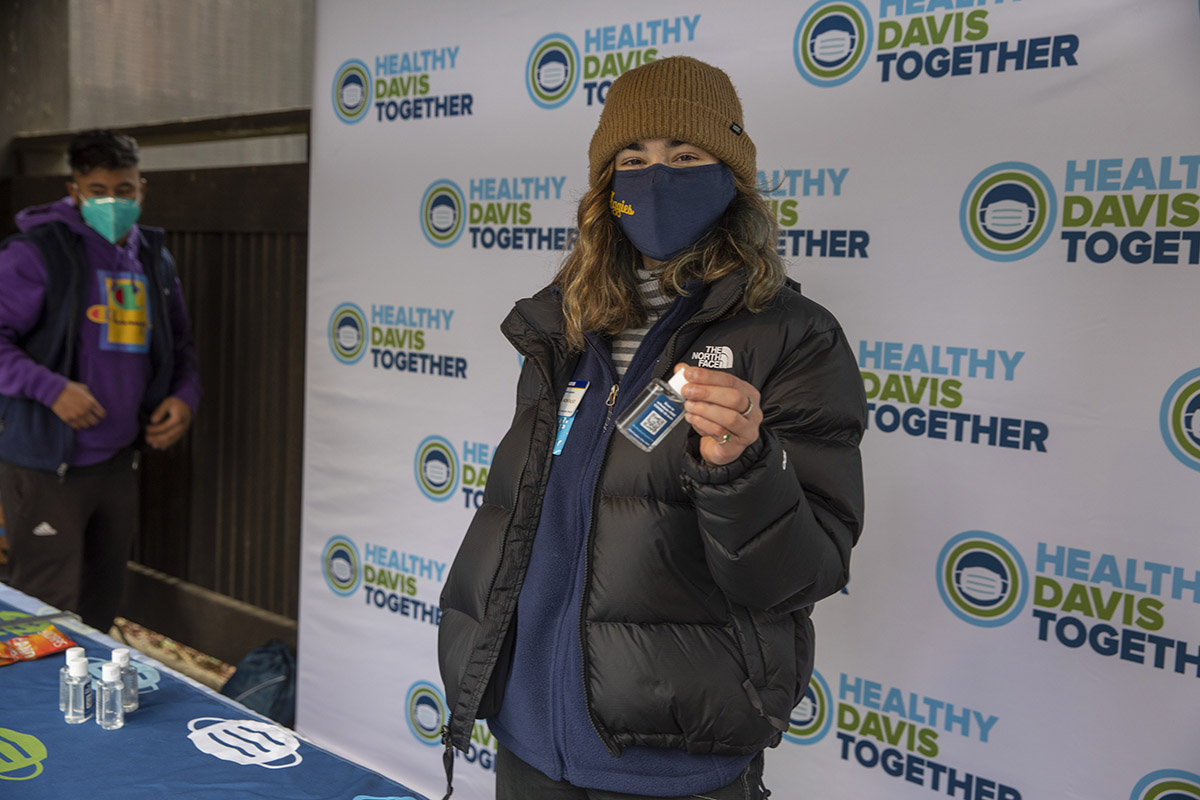Engaging students as public health ambassadors has been a key part of Healthy Davis Together’s approach to prevent the spread of COVID-19 and safely bring students back to campus and into the Davis community.
When the Aggie Public Health Ambassadors (APHA) program launched in September 2020, our goal was to empower students, bolster public health messages and build community. Today, the program has achieved those goals and more. In addition to being seen as leaders on campus and in the community, Aggie Ambassadors report feeling more connected to their peers and the community, and have been are designated “essential workers”—demonstrating that the program is not only successful in engaging students, but also successful in strengthening our public health infrastructure.


Designing the Program
As in many college towns, UC Davis’ staff and student body are an important part of daily life in Davis. The university does not end at borders of our campus, it extends downtown into our grocery stores, the coffee shops where we grab a coffee, and the off-campus housing where we live. The idea that we can safely re-open Davis and reintegrate students into daily life is at the center of Healthy Davis Together’s approach.
As UC Davis made plans for Fall 2020 quarter, we developed the Aggie Public Health Ambassadors (APHA) program with the goal to equip university students as leaders in modeling and reinforcing positive public health behaviors and as well as educators. The APHA program was designed with these beliefs in mind:
- Students can lead behavior change. Students are active learners who are ready and willing to engage – they just need the tools. We believed that with training and opportunity, students could play a key role in supporting the behavior change needed to slow the spread.
- Active engagement can combat social isolation. We knew that physical distancing would have an impact on students’ social and emotional health, and that distancing could also make students and the community feel more isolated from each other. We believed active student engagement in the community would benefit both students and residents.
- Student safety is priority #1. From educating students on the basics of epidemiology, to providing them with personal protective equipment (PPE) and training on how to engage in constructive conversations, the program was designed to put safety first.
The APHA program was designed as a practicum for undergraduate students interested in public health. These students apply for the position and participate in over 20 hours of training. Over the course of their training, students work in teams and learn the basic epidemiology of COVID-19, how to work and plan as a team, and how to engage in constructive conversation. Putting best behavior change practices to work, we wanted to be sure Ambassadors were equipped to reinforce positive behaviors in the community and safely and appropriately course correct. As part of their training, Aggie Ambassadors learn how to engage in friendly conversations and role-play how to recognize and diffuse conflicts. Additional training has been given as the science about COVID-19 and effective prevention measures has grown.
Once trained, Aggie Ambassadors spend time on campus and at the weekend Downtown Davis Farmer’s Market where they are supervised by MPH graduate students and Public Health Educators. They:
- Encourage health safety protocols like social distancing and handwashing, and handing out free face coverings;
- Model positive behaviors like how to wear a mask safely and offering friendly reminders when needed (like covering your nose);
- Reinforce positive behaviors by recognizing residents who are taking the right steps and thanking them for their efforts; and
- Raise awareness of free resources in town like COVID-19 asymptomatic testing and the importance of setting up regular COVID-19 screening appointments.
Aggie Ambassadors are helping the community and seeing benefits for themselves as well.
To date, nearly 300 students have been trained as Aggie Ambassadors and spend a combined 2,500 hours each week engaging throughout the city and on campus. All Ambassadors have remained COVID-free. In addition to providing value public health education and reinforcement in Davis, students report positive benefits for themselves including a stronger sense of connectedness their peers and the community.
As community needs have changed over time, the APHA program’s focus has shifted as well. Aggie Ambassadors have expanded their role to support COVID-19 community testing locations where they assist with educating the public about the importance of regular and frequent testing. In November, Ambassadors were officially designated by the city as “essential workers”—a recognition of the important role they play. Looking ahead, the program is likely to support the city and county’s efforts to increase vaccination in the community.


